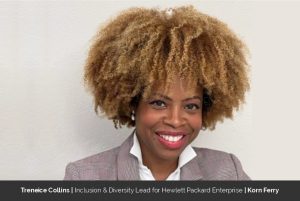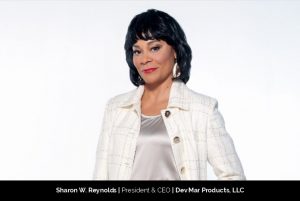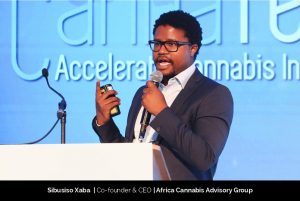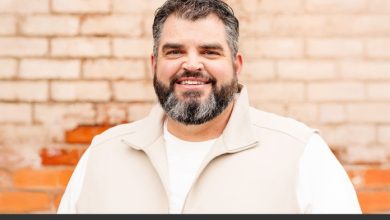Gilbert & Michael Allen: Spreading the Power of Brotherly Love for Transformation & Healing
Top 10 Black Executives Redefining Business in 2023
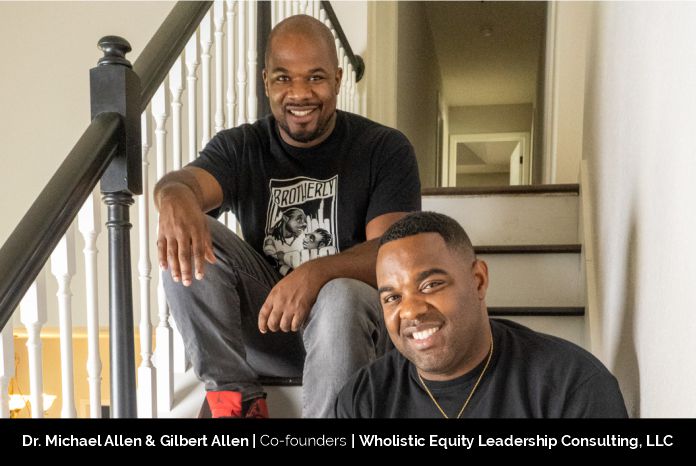
The Allen brothers, Michael and Gilbert, are Executive
Leadership Coaches at Wholistic Equity, a leadership consulting firm for all
organizations that place a premium on respecting the dignity of those who are
most at risk or have been historically marginalized.
Founded by Dr. Michael Allen, Wholistic Equity is a social
enterprise leadership consulting company that prioritizes the humanity of
vulnerable and marginalized groups in all aspects of its work, to empower
current and future leaders.
In addition to investing in the development of tomorrow’s
leaders, it funds initiatives to raise awareness about and combat the effects
of mental illness, substance abuse, homelessness, and the breakdown of
families, by donating to organizations that support these efforts.
“We cannot change the world until we change
ourselves. If we invest in our healing, then we will be able to achieve great
things.”
Passionate About
Helping Those Who Struggle
When Michael was a kid, he always dreamed of being a
pharmacist. He loved the kinetic, healing power of science and medicine, and
was convinced that he could heal humanity through having his hand in the
medicine available to people in pharmacies.
Michael was always passionate about the coaching and
consulting industry because it is the one area that has directly led to so much
of his leadership success, especially in the education field. Over the years,
his coaches and consultants always came in with a fresh set of eyes that
illuminated a perspective enabling him to see more and be more, which unlocked
access to opportunities and decisions that were impactful to the masses.
Gilbert’s dream as a kid was to help his community overcome
challenges such as poverty, mental health, and anyone who was struggling with a
learning disability. “To be honest, I’m living my dreams now as a social
worker, book author, and keynote speaker. I’m able to speak life into others
who are struggling with finding meaning in this world,” he says.
Working to Create
Transformation & Breakthroughs
As a co-founder and Executive Leadership Coach at Wholistic
Equity, Gilbert’s responsibilities include providing keynote speeches and
presentations, executive leadership coaching and training, professional
development, and partnerships with schools or organizations. He sees himself as
a transformational leader who enjoys inspiring his teams or clients to think in
new ways. His goals are challenging others to grow, as well as understanding
that we all have unique gifts.
“I often ask staff members what is their why, and how is it
connected to their gift. I think there’s nothing better than seeing a client or
team member, who initially struggles with confidence, experience breakthroughs
that enhance their practices. As humans, we all have challenges and strengths,
but we need someone to help us see the bigger picture as professionals,” he
says.
Most of Michael’s time is allocated toward the work he
loves, which is in the field of coaching and mentoring leaders. He travels all
across the globe, giving keynote speeches, facilitating workshops, and presenting
his research. He also spends time leading the managerial and administrative
side of the organization.
Michael firmly believes that success is the progressive
realization of the long-term purpose of one’s life. “In my case, I feel that
everything is about empowerment and liberation. I constantly ask myself the
question, how can I be an instrument that aids in removing obstacles and
barriers that limit access and opportunities for those I’ve been charged to
lead and serve?” he asks.
Michael’s goal is to travel all around the world using his
gift to empower vulnerable and marginalized people. In addition to Wholistic
Equity, he hopes to establish a nonprofit that will enable them to extend their
reach, in terms of supporting students and adults. Last but not least, he plans
to publish multiple books to support leaders from various sectors.
Learning Lessons on
the Leadership Journey
Before his most recent career move, Michael was an educator
for 16 years in public schools, 14 of which he spent as a principal. When he
started his formal leadership journey as a principal in Chicago at the age of
24, he struggled with his narrow view of excellence and dedication. “I was
impatient with how I embraced the complexities that each person brought into
the process of moving the team forward. It took me some time to understand that
not everyone had the same approach as me and that was completely fine,” he
says.
Among the many awards that Michael received, perhaps his
greatest accomplishment was the honor of being named Principal of the Year. “I
didn’t care about the award, but I value how it centered the focus on the
success of my entire school family. Our school had been counted out for
decades, and the things that we were collectively able to accomplish in a short
period were nothing short of remarkable,” he affirms.
Michael recalls that while being a young leader helped him
during certain phases of his journey, one roadblock he faced was that many
people didn’t take his dedication to the field seriously. They often saw his
youth and assumed that his priorities and commitment mirrored those of the
stereotypes for his age. As a result, he often spent a lot of time trying to
overcompensate for how people perceived him. Eventually, he started to realize
that his competence spoke for itself, and the more he evolved in this way,
other people gradually came on board.
“I see my leadership journey as a beautiful struggle. I’ve
learned significantly more from my mistakes than from my successes, and I’m
very grateful for every obstacle. If I had to define myself in one word, it
would be humane, in a holistic sense,” he reflects. “I strive to keep the team
motivated through transparency in communication, modeling vulnerability,
centering equity of voice from all stakeholders, as well as constantly
commending people for their genius and commitment to moving the organization
forward.”
When Gilbert first got into leadership, he struggled with
putting the team’s needs first. Over time as a leader, he learned that you have
to put the team’s needs above your own needs. His leadership journey taught him
to be comfortable with understanding that he doesn’t know it all, and that it’s
okay to show your vulnerability to others because it gives them permission to
do the same and grow. He believes that it’s important to trust staff members
and show them compassion and empathy if you want to see them grow into
something special.
“I think my greatest lesson is learning that you need to
unlearn things that are not serving your future. I absolutely love
self-reflecting on my areas of weakness to understand how I can get better as a
leader or as a human in the world around me,” he elaborates. “I keep my team
motivated daily by doing my best to keep my word. I also like to share
decision-making authority with my staff, and I try to set clear goals for
myself and them. I love giving positive feedback and rewarding my team for a
job well done. I tell my staff that it’s important for me to help them develop
by providing opportunities and ongoing training. If I had to pick one word to
describe my leadership journey, I would pick ‘Growth’.”
“When you have a dream, you’ve got to grab it and never let go.” – Carol Burnett
Incorporating
Coaching Best Practices for Meaningful Skill Development
Michael points out that coaching is often perceived as
scripted and theory-based, rather than practical and tangible for one’s own
individual and unique context. His coaching approach, over the years, has
become highly based on relationship development, emotional intelligence, and
operationalizing humanity, while incorporating best practices that truly move
meaningful skill development forward.
Gilbert recalls that when he first entered the field of
social work, it wasn’t trauma centered, and now it’s all about not
re-traumatizing a family or client. “I’ve learned, over the years, that my
words are powerful, and I need to understand how to uplift families and clients
from all different backgrounds in my field,” he remarks. His goals over the
next few years are to finish his Ph.D. in counseling, continue to grow as a
keynote speaker, and shine his light on the world.
Michael notes that their mission is to prepare today’s
leaders to live tomorrow’s promise. In today’s evolving society, many leaders
from all walks of life are seeking clarity that will aid in their ability to
“operationalize” equity in a way that actively meets the needs of all people.
WE Leadership Consulting can holistically support teams as they start and
further their efforts in building bridges, so that they can activate their
fullest potential and empower each member of their teams.
Time Spent in
Self-Care and Healing is Never Wasted
Gilbert believes that his greatest achievement at Wholistic
Equity is getting the chance to work with his older brother on many projects.
“It’s always been a dream of mine to play football with him. I didn’t get a
chance to do that, but I did get a chance to open a company and write two books
with him. So, for me, that’s been a dream come true for me,” he remarks.
Over the years, Gilbert learned that self-care is very
important, so his life balance includes taking road trips to New Orleans,
Texas, or other hot areas to relax and recharge, physically, mentally, and
emotionally. “To be honest, any place that is hot helps me reset,” he
clarifies.
Michael’s goal is to spend at least 30 percent of his time
each week on things that keep him grounded or give him peace. He plans out his
meditations, workouts, and other creative activities in his calendar with the
same urgency and intentionality as his formal work for the week. In addition,
he feels the need to go on at least one vacation a quarter. These are the key
areas that aid in his ability to recharge his battery.
Michael’s biggest message to Black professionals and leaders
is to never underestimate how much time and energy you must invest in healing
from the things that you have been exposed to. Similarly, try to lead with
love, empathy, and compassion. “I believe that these areas will be the
foundations of success in leadership in the future,” he insists.
“We cannot change the world until we change ourselves. If we invest in our healing, then we will be able to achieve great things.” – Gilbert Allen









